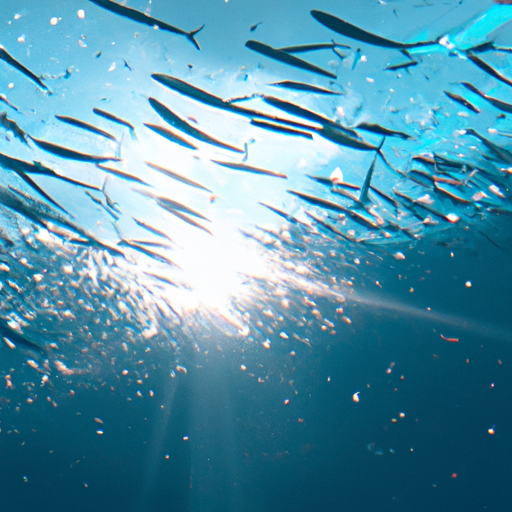-
Table of Contents
How important is ocean life?

Ocean life plays a crucial role in maintaining the balance of our planet’s ecosystem. It is not only essential for the survival of marine organisms but also for the well-being of human beings. The significance of ocean life can be seen in various aspects, including Ocean Life Importance, Marine Biodiversity Relevance, and Sea Creatures Significance.
Ocean Life Importance
The importance of ocean life cannot be overstated. The oceans cover more than 70% of the Earth’s surface and are home to a vast array of species. They act as a major source of food, provide livelihoods for millions of people, and contribute significantly to the global economy. Additionally, the oceans play a crucial role in regulating the Earth’s climate by absorbing carbon dioxide and releasing oxygen through photosynthesis.
Furthermore, ocean life is a source of inspiration and wonder for humans. The beauty and diversity of marine life have captivated people for centuries, leading to scientific discoveries and advancements in various fields. The study of ocean life has also contributed to medical research, with marine organisms providing potential sources for new drugs and treatments.
Marine Biodiversity Relevance
The oceans are home to an incredible diversity of species, making them a hotspot for biodiversity. This biodiversity is not only fascinating but also essential for the functioning of ecosystems. Each species plays a unique role in maintaining the balance of the marine environment.
Marine biodiversity provides numerous ecosystem services, such as nutrient cycling, waste decomposition, and water filtration. These services are vital for the health and productivity of both marine and terrestrial ecosystems. For example, coral reefs, known as the “rainforests of the sea,” support a wide range of species and provide protection against coastal erosion.
Furthermore, marine biodiversity contributes to the resilience of ecosystems in the face of environmental changes. A diverse ecosystem is better equipped to adapt to disturbances, such as climate change and pollution. Therefore, preserving marine biodiversity is crucial for the long-term sustainability of our planet.
Sea Creatures Significance
Sea creatures, from the smallest plankton to the largest whales, play a significant role in the functioning of marine ecosystems. They are part of complex food webs, where each species relies on others for survival. Removing or disrupting one species can have cascading effects throughout the entire ecosystem.
Sea creatures also contribute to nutrient cycling in the oceans. For example, whales play a crucial role in the transportation of nutrients from deep waters to the surface through their feeding and migration patterns. This process enhances primary productivity and supports the growth of phytoplankton, which is the foundation of the marine food chain.
Additionally, sea creatures have cultural and recreational significance. They inspire art, literature, and folklore, and they attract tourists to coastal areas for activities such as whale watching and scuba diving. The presence of diverse and abundant sea creatures enhances the overall experience and enjoyment of these activities.
Conclusion
In conclusion, ocean life is of utmost importance for the well-being of our planet and its inhabitants. It provides essential ecosystem services, supports biodiversity, and contributes to the global economy. Preserving and protecting ocean life is not only a moral obligation but also a necessity for the long-term sustainability of our planet. By recognizing the significance of ocean life, we can work towards ensuring its conservation and creating a better future for generations to come.